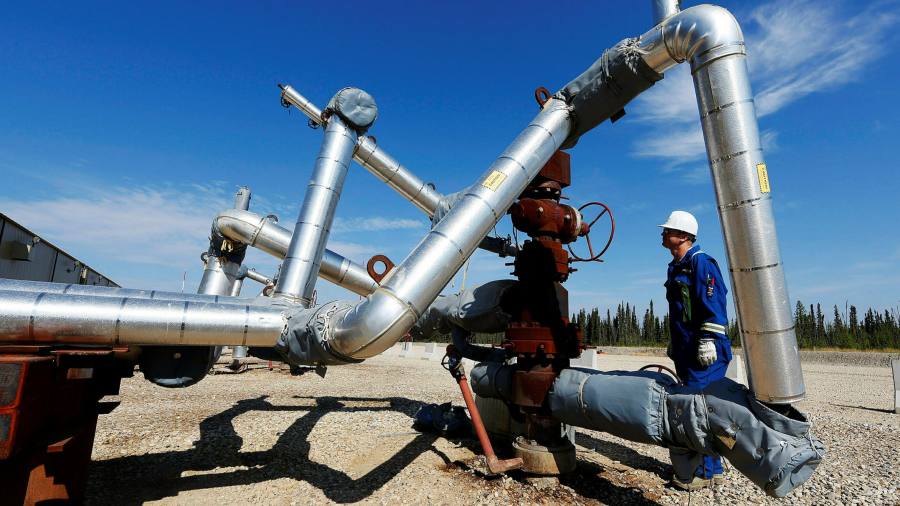
Cenovus Energy is to buy rival Canadian oil producer Husky Energy, controlled by Hong Kong billionaire Li Ka-shing, in a C$10.2bn ($7.8bn) deal as the wave of consolidation sweeping North America’s battered oil and gas sector gathers speed.
The new company will be worth C$23.6bn, Cenovus said, making it Canada’s third-largest oil and gas producer with an output of 750,000 barrels a day concentrated in the bitumen-rich oil sands of northern Alberta, the biggest single source of US crude imports.
The transaction is the latest in a string of North American oil mergers as operators seek to consolidate and cut costs. The largest came last week when ConocoPhillips agreed to buy Concho Resources in a deal worth $9.7bn, marking another big bet on the future of US shale.
Other recent deals include the $7.6bn takeover of US shale group Parsley Energy by Pioneer Natural Resources, Chevron’s $13bn plan to buy Noble Energy and Devon Energy’s $12bn deal to combine with rival WPX Energy.
The plummeting oil price had caused shares in Cenovus to fall by more than 60 per cent since the start of January, and Husky’s by almost 70 per cent.
The deal was conceived as a nil-premium merger, but due to the divergence in share prices, Cenovus has agreed to pay a 21 per cent premium, or 23 per cent including warrants, to Husky shareholders. The transaction values Husky’s shares at about $3.8bn, or $10.2bn including debt.
“We will be a leaner, stronger and more integrated company, exceptionally well-suited to weather the current environment and be a strong Canadian energy leader in the years ahead,” said Alex Pourbaix, Cenovus’s chief executive.
The new company will be 61 per cent owned by Cenovus shareholders, with the reminder held by Husky’s investors. Two entities controlled by Mr Li, which own about 70 per cent of Husky at present, will emerge with more than 27 per cent of the new company’s common stock.
Mark Oberstoetter, head of North America upstream research at Wood Mackenzie, said the takeover meant Cenovus would now have enough refining capacity to handle the bulk of its own production, which could add some “natural hedging back into the portfolio”.
After the withdrawal of several international oil companies from the Alberta oil sands — where the high cost of producing bitumen, constant environmental opposition, and slow progress in building new pipeline infrastructure have deterred investors — the Cenovus deal points to the sector’s further consolidation in the hands of local companies.
Future dealmaking could see remaining oil sands interests held by Total, Shell, BP, and Chevron — which no longer consider the region strategic — targeted for acquisition by Canadian operators, Mr Oberstoetter added. “Calgary used to be an international hub, but we've lost that,” he said.
Both Cenovus and Husky were among oil-sands operators forced to shut some production this year as prices fell. The Alberta government, which offered to collaborate with the Opec cartel in its supply cuts earlier this year, has used a programme of so-called curtailments to restrict supply from operators, including Cenovus and Husky, to prevent production overwhelming local infrastructure.
Canada’s production of bitumen — ultra heavy oil that must be upgraded before refining into fuels — has attracted environmental opposition because of its carbon intensity and its vast ecological footprint in northern Alberta.
Insufficient pipeline capacity to ship growing volumes of oil-sands production to markets beyond North America has periodically forced deep discounts on Canadian exports. The low quality of Alberta’s oil also makes it cheaper. While US oil has traded at about $40 a barrel in recent weeks, the benchmark for Canadian oil has been priced at about $30 a barrel.
The companies said annual synergies created by the deal would amount to $1.2bn, largely achieved within the first year. Free cash flow would be achieved at a price of $36 for a barrel of West Texas Intermediate in 2021.
A new 12-person board will comprise eight directors from Cenovus and the remainder from Husky.
Business - Latest - Google News
October 25, 2020 at 08:45PM
https://ift.tt/31GuoGa
Cenovus snares Li Ka-shing’s Husky Energy in $7.8bn deal - Financial Times
Business - Latest - Google News
https://ift.tt/2Rx7A4Y
Bagikan Berita Ini















0 Response to "Cenovus snares Li Ka-shing’s Husky Energy in $7.8bn deal - Financial Times"
Post a Comment